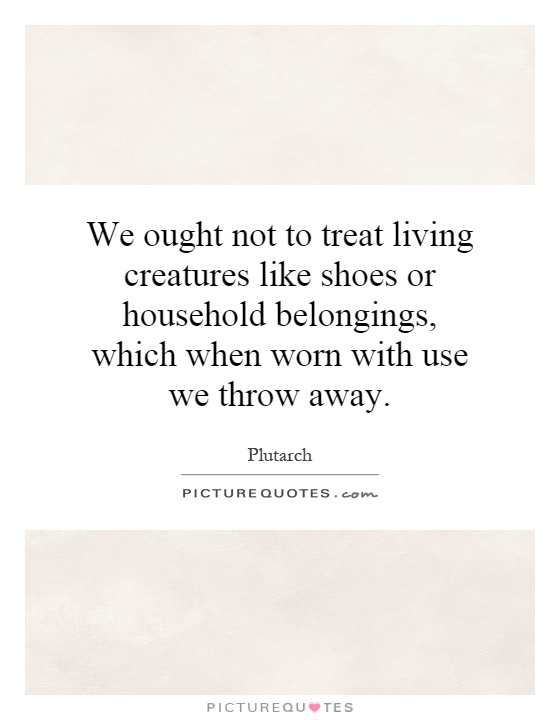We ought not to treat living creatures like shoes or household belongings, which when worn with use we throw away

We ought not to treat living creatures like shoes or household belongings, which when worn with use we throw away
Plutarch, the ancient Greek philosopher and biographer, believed in the inherent value of all living creatures. In his writings, he often emphasized the importance of treating animals with respect and compassion, arguing that they should not be treated as mere objects to be used and discarded at will. Plutarch's views on the ethical treatment of animals were ahead of his time, and his words continue to resonate with modern-day animal rights activists and advocates.Plutarch's statement that "We ought not to treat living creatures like shoes or household belongings, which when worn with use we throw away" reflects his belief in the interconnectedness of all living beings. He understood that animals, like humans, are sentient beings capable of feeling pain and suffering. To treat them as disposable objects is not only morally wrong but also goes against the natural order of the world.
Plutarch's teachings on animal ethics were influenced by his broader philosophical beliefs, including his belief in the interconnectedness of all living beings and the importance of living in harmony with nature. He believed that humans have a moral obligation to treat animals with kindness and compassion, as they are fellow inhabitants of the earth and deserve to be treated with dignity and respect.
Plutarch's views on animal ethics were also shaped by his understanding of the interconnectedness of all living beings. He believed that humans and animals are part of a larger ecosystem, and that our actions towards animals have a direct impact on the well-being of the planet as a whole. By treating animals with kindness and respect, we are not only fulfilling our moral obligations but also contributing to the greater good of the world.












 Friendship Quotes
Friendship Quotes Love Quotes
Love Quotes Life Quotes
Life Quotes Funny Quotes
Funny Quotes Motivational Quotes
Motivational Quotes Inspirational Quotes
Inspirational Quotes